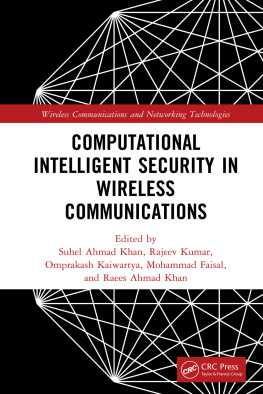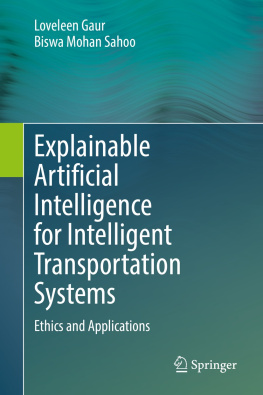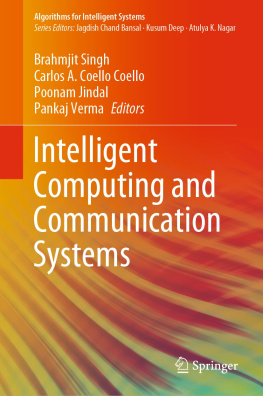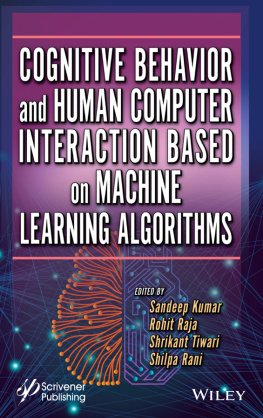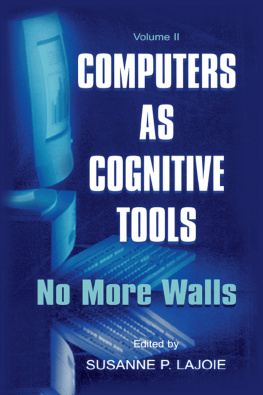Computers as Cognitive Tools
TECHNOLOGY IN EDUCATION SERIES
Edited by
Raymond S. Nickerson
Nickerson/Zodhiates Technology in Education: Looking Toward 2020
Larkin/Chabay Computer-Assisted Instruction and Intelligent Tutoring Systems: Shared Goals and Complementary Approaches
Bruce/Rubin Electronic Quills: A Situated Evaluation of Using Computers for Writing in Classrooms
Ruopp LabNet: Toward a Community of Practice
Schwartz/Yerushalmy/Wilson The Geometric Supposer: What is it a Case of?
Lajoie/Derry Computers as Cognitive Tools
COMPUTERS AS
COGNITIVE TOOLS
Edited by
SUSANNE P. LAJOIE
McGill University
SHARON J. DERRY
University of WisconsinMadison

First Published by
Lawrence Erlbaum Associates, Inc., Publishers
10 Industrial Avenue
Mahwah, New Jersey 07430
Transferred to Digital Printing 2009 by Routledge
270 Madison Ave, New York NY 10016
2 Park Square, Milton Park, Abingdon, Oxon, OX14 4RN
Copyright 1993, by Lawrence Erlbaum Associates, Inc.
All rights reserved. No part of the book may be reproduced in
any form, by photostat, microform, retrieval system, or any other
means, without the prior written permission of the publisher.
Library of Congress Cataloging-in-Publication Data
Computers as cognitive tools / edited by Susanne P. Lajoie, Sharon J. Derry
p. cm.
Includes bibliographical references and index.
ISBN 0-8058-1081-1. ISBN 0-8058-1082-X (pbk.)
1. Computer-assisted instructionUnited States. 2. Artificial
intelligence. I. Lajoie, Susanne. II. Derry, Sharon J.
LB1028.5.C5722 1993
371.334dc20
93-16902
CIP
Publisher's Note
The publisher has gone to great lengths to ensure the quality of this reprint
but points out that some imperfections in the original may be apparent.
Contents
Preface
Susanne P. Lajoie
McGill University
Sharon J. Derry
University of WisconsinMadison
Writing this preface means that we are putting closure to a project that has been on our minds for some time. It gives us the opportunity to communicate why we think this book is important and how our ideas have evolved throughout the writing process. Two conferences stimulated the development of this volume, the American Educational Research Association (AERA) meeting in 1990 and the NATO conference on adaptive learning environments that was held in Calgary in the summer of that same year (see Jones & Winne, 1992). At the AERA meeting we organized a symposium on Computers as Cognitive Tools, which drew a large enthusiastic audience. The NATO conference brought computer scientists together with instructional and cognitive psychologists for the purpose of bridging gaps between theory and practice in the field of artificial intelligence and education. Discussions at these conferences revealed that the intelligent tutoring movement, long dominated by the student modeling paradigm, had both supporters and detractors. This observation, along with new perspectives on thinking and learning introduced by the situated cognition movement, led us to conceptualize this book and our introductory chapter on theoretical camps in the design of computer-based learning environments.
Theoretical camps are described to stimulate thinking about how researchers situate themselves within general theoretical perspectives and conduct research or develop computer-based learning environments within these perspectives. We do not want to give the impression that these so-called camps are rigid classifications or that any one theoretical camp is superior to another. We highlight the facts that these theoretical camps are evolving and that several contributors belong to more than one. But movement from one camp to another does appear to represent meaningful theoretical reorientation, as well as transition in the design of computer systems that vary in terms of the type of assistance provided to learners. Our original intent in producing this book was to provide readers with exemplars of the types of computer-based learning environments represented by the full range of our camping analogy. We did not attempt to provide a comprehensive examination of all the possible uses of computers in education, but we did purposefully invite contributors who we thought would reflect the theoretical philosophies with which we were concerned, as well as a wide range of practical applications. Accordingly, our contributors address a variety of computer applications to learning ranging from school-related topics such as geometry, algebra, biology, history, physics, and writing, to the more technical domains of electronics and avionics. The exemplars that we have selected are highly varied in terms of the instructional philosophies that guide their design, the types of assessment methods that are employed, and the forms of cognitive tools that are embedded within systems to help facilitate and evaluate learning.
The discussants, Alan Lesgold and Susan Chipman, add their respective viewpoints on the various issues involved in conducting empirical research using computers in the classroom. One topic they address is whether computer systems of the type described in our volume will ever have widespread impact on traditional education. Lesgold's optimism on this issue is tempered by Chipman's more pessimistic outlook. We leave it to the readers to decide.
We hope that this volume will provide food for thought for researchers who use computers as tools for enhancing learning. Computers as Cognitive Tools is appropriate for a variety of individuals, cognitive scientists, educational psychologists, computer scientists, teachers, and students. We would like to thank the contributors for their diligence in meeting all the deadlines and for making a significant impact on our understanding of the use of computers as cognitive tools. We would also like to thank Richard Lehrer for suggesting we produce this volume.
REFERENCES
Jones, M., & Winne, P. (1992). Adaptive learning environments. New York: Springer Verlag.
A Middle Camp for (Un)lntelligent Instructional Computing: An Introduction
Sharon J. Derry
University of WisconsinMadison
Susanne P. Lajoie
McGill University
The impetus for editing Computers as Cognitive Tools was spurred by questions currently being addressed by researchers in the fields of AI and cognitive science as to what is good pedagogy and what types of computer systems will enhance learning? These questions point to answers that may be realized in practice, for the use of advanced computer technology in the classroom is no longer just a researcher's fantasy. Even though state-of-the-art technology always precedes availability in a typical classroom or training environment, we see progress in that researchers are bridging the gap between theory and practice by testing computer systems outside of the laboratory. However, along with this progression has been a theoretical shift that is sometimes misconstrued as the continental divide of AI and education. Presiding on the mountain range that has resulted from this shift is an imaginary camp where researchers take a middle-road theoretical stand on pedagogical principles that guide the design of computer learning environments. Two imaginary camps on opposite sides of this mountain range are often theoretically opposed in terms of their philosophies regarding how computers can be used to facilitate instruction. One camp attracts model builders; the other shelters many non-modelers. Model builders represent what might be regarded as the traditional intelligent tutoring system (ITS) paradigm (if such a young science can have a tradition), which is based on assumptions that students thinking processes can be modeled, traced, and corrected in the context of problem solving, using computers. Researchers camping with non-modelers are in opposition, either because they do not believe it is feasible to construct adequate cognitive models, or because better or more cost-effective alternatives exist. One alternative is that students can be stimulated to monitor and diagnose their own learning and problem-solving performance through the use of well-designed cognitive tools.

![Lajoie Susanne P(Editor) Computers as cognitive tools. [1]](/uploads/posts/book/250179/thumbs/lajoie-susanne-p-editor-computers-as-cognitive.jpg)
